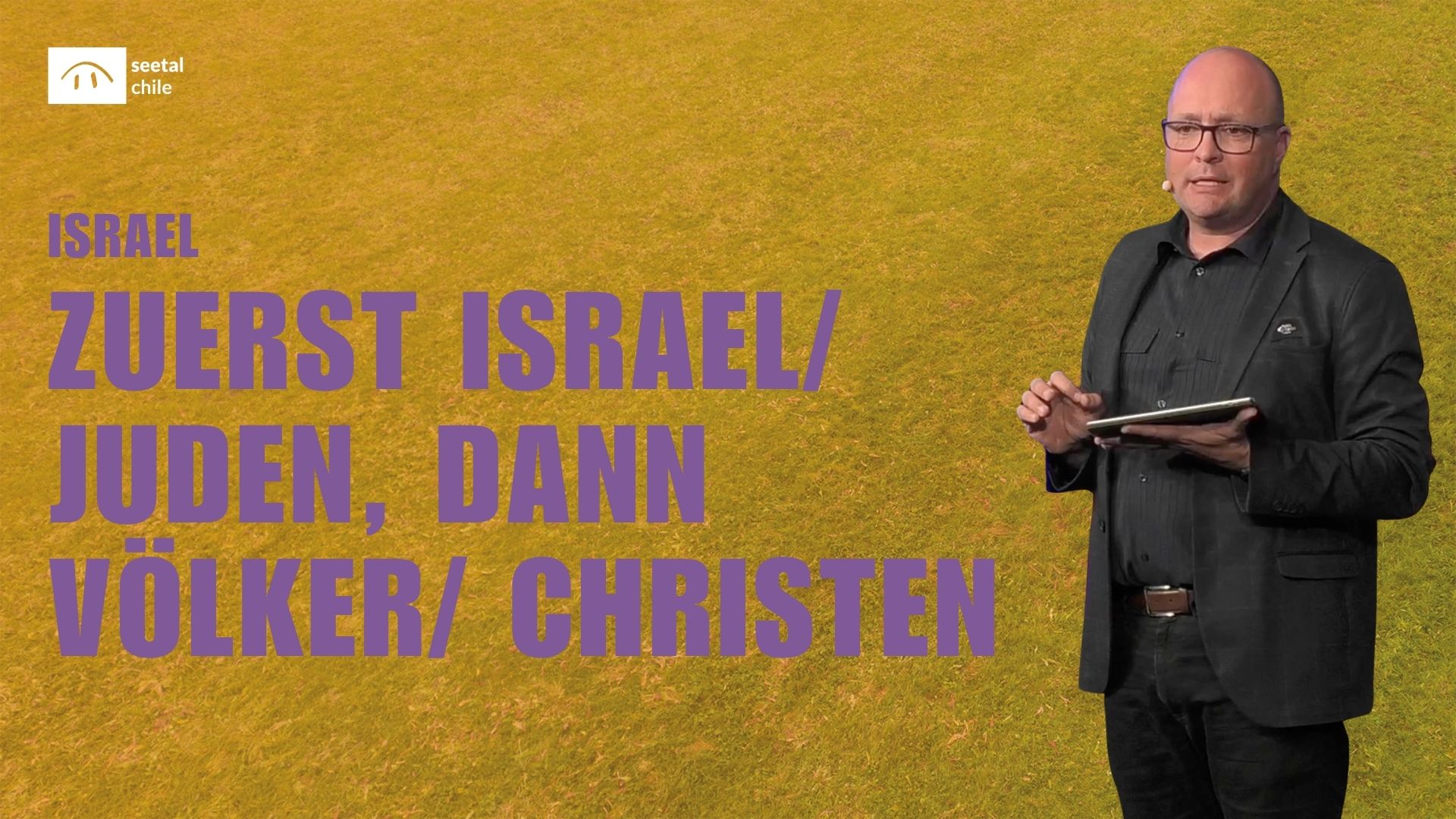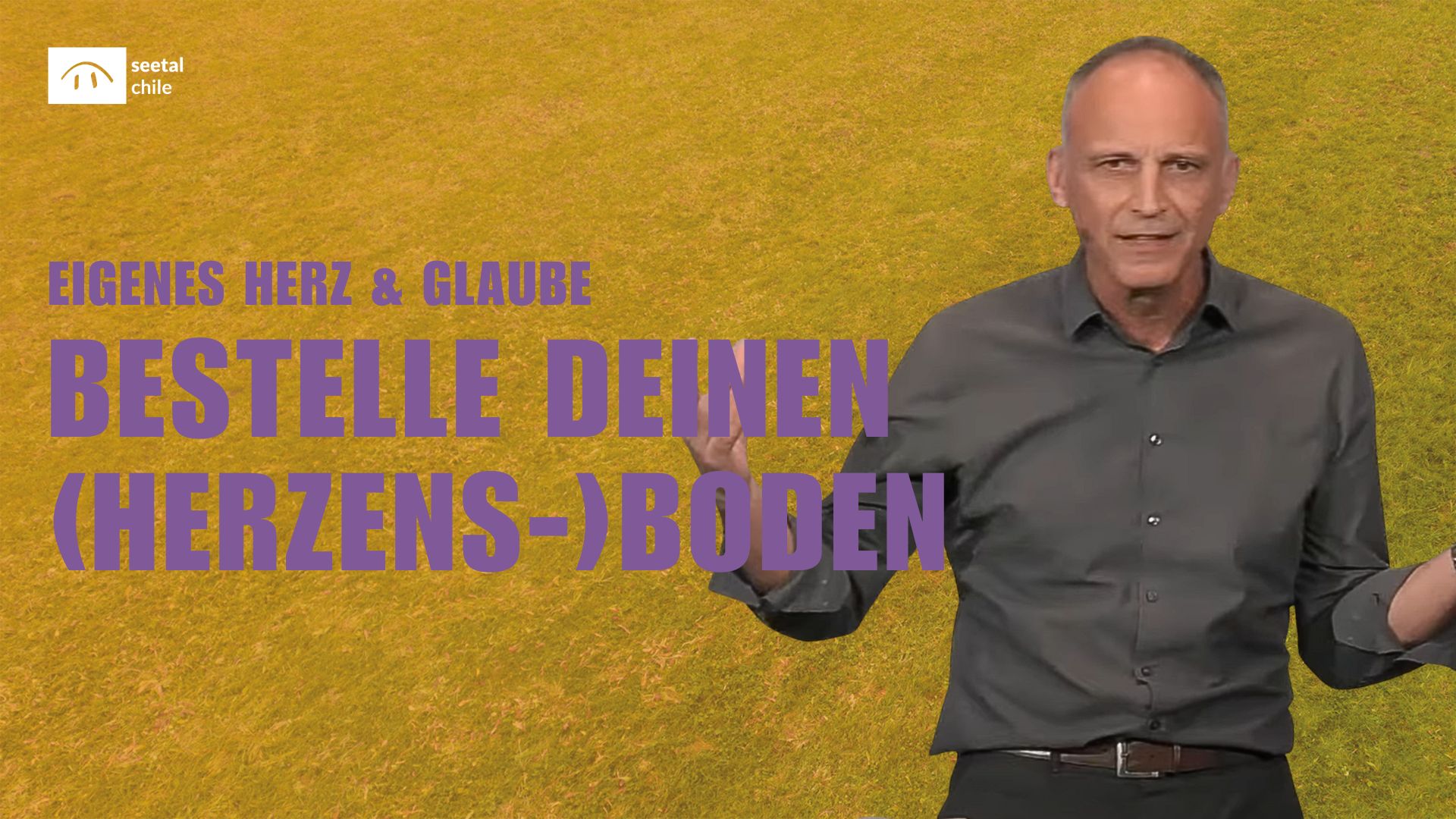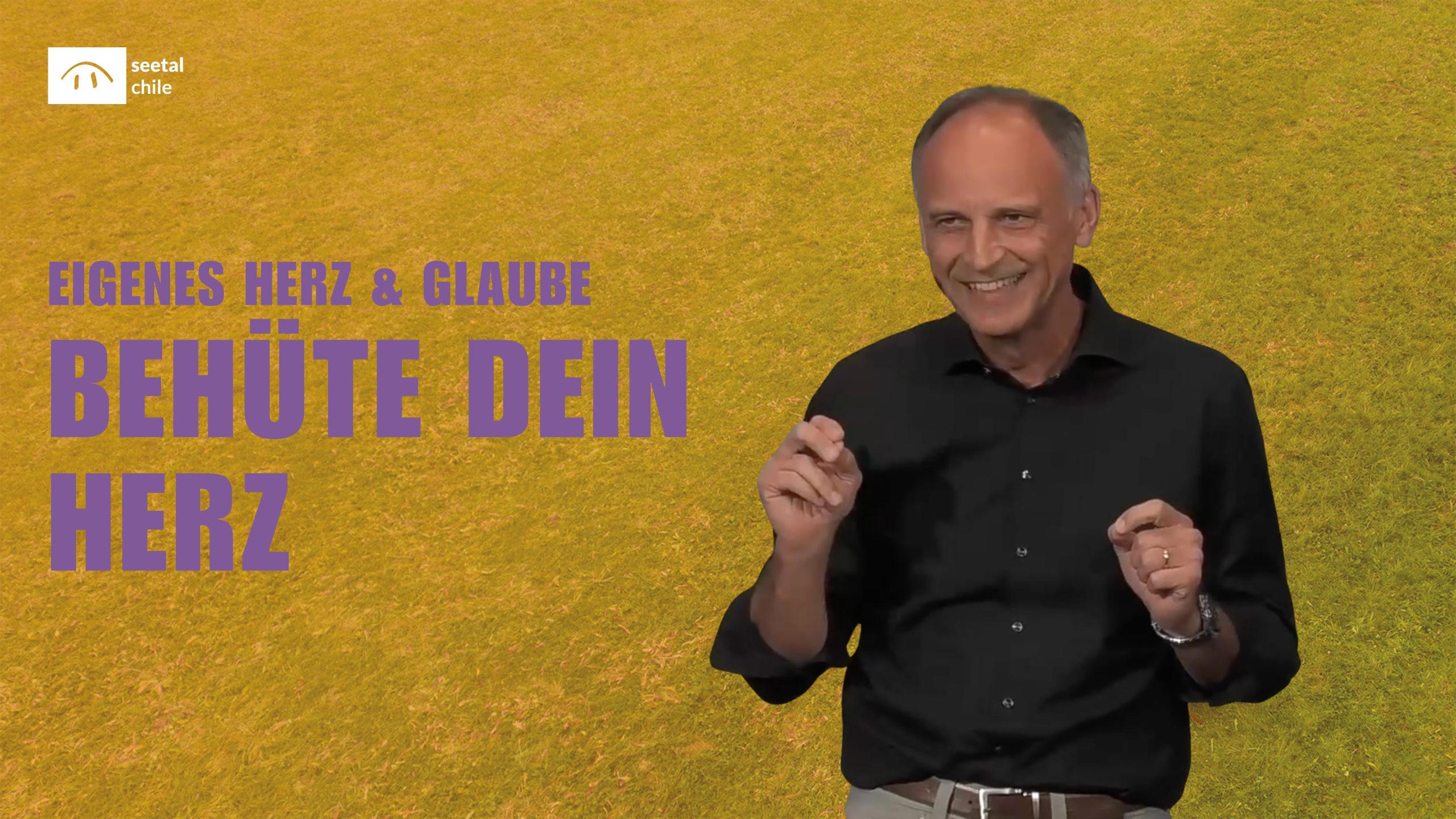Dancing to the music of God
Series: Metamorphosis | Bible text: Psalm 1–3
The audience heard the Sermon on the Mount with Jewish ears. There are many images in it that set the head cinema of those present in motion. We approach the Sermon on the Mount from the Old Testament. In the Psalms we discover the three-step process: building virtue and character, realising God’s reign, and trusting God and praying. The metamorphosis should lead us to learn to dance to the music of God.
Once upon a time there was a little boy. His father sat in the same room and wanted to read the newspaper. Impossible. Too much noise. Then the father had a saving thought: he took an old book from the shelf, opened it and tore out a page with a picture of a map of the world. He cuts it up and calls out to the boy: «Hey Tim, I have an interesting game for you! Put the pieces of this world map together correctly. If you succeed, you get a franc.«And Tim is already sitting in a corner and working quietly. The father is happy about the quiet. It will last a long time with this difficult task. Far from it! In a few minutes, the little boy is holding up his flawless work to his astonished father. Shaking his head, he asks: «How could you put together the world map, which you don’t even know, in such a short time?» – «Very simple!«Tim shows his father the other side of the page, where a large human face is depicted. «I simply put the human image together and then it was right with the world on the other side!«The father is silent for a long time. Then he says thoughtfully: «Yes, it’s really true: If it’s right with the person, it’s right with the world.»
In this world, many things are wrong because they are wrong with the human being. Metamorphosis is to transform our being into the strength of character originally intended by God. The Sermon on the Mount (Matthew 5–7) contains the corresponding character building, that someone becomes a flourishing person and can make an important contribution that all is right with the world again.
The first information we get from the New Testament is: «This is the book of the history of Jesus Christ, the Son of David, the Son of Abraham»(Matthew 1:1 Lut). This heading for all that is to come points to Jesus» family. With this we know that Jesus is completely Jewish. His disciples are also Jewish and hear with Jewish ears. They hear that Jesus is wholly connected to Abraham and David. Paul says in Romans 10 that Jesus is the goal of the Torah (5 books of Moses). Why is the Torah given? So that people may become like God and dance to his music. This means being humble, suffering, meek, just, merciful, pure of heart and peaceable – all things we know from the Sermon on the Mount.
We have to understand the Sermon on the Mount from the Old Testament. The whole biblical narrative can be considered under the heading «Kingdom of God» or «Reign of God». God’s reign means that he makes the music, and his kingdom is realised to the extent that we humans dance to that music. Or in the words of Peter Kuzmic: «Hope means listening to the music of the future. Faith means dancing to it in the present.» From the beginning, God’s plan was for Him to reign with man over creation. «Thus God created man in his own image, in the image of God he created them, male and female he created them»(Genesis 1:27 NL). Man is created to orientate himself to the Creator, to take up the rhythm of the Creator in the shaping of one’s life. In this way, God exercises his dominion over his creation. He created everything from nothing. He has assigned man the role of God’s governor. Just as a great king places his statue in the regions to document his claim to rule, so the Creator places man in his creation. He is to «rule» by ordering, naming, cultivating, preserving, more and filling the earth. He is, so to speak, «world administrator».
God’s project to realise his kingship over his creation together with a human being as his governor is risky. If God had created a robot, he could have saved himself a lot of grief and trouble. But God has created a counterpart for himself. A being with whom he can enter into a personal relationship. A being whom he loves and who can love him. Man can decide for himself to whose music he wants to dance. And – the dancer of God became a stumbling block and dragged the whole creation with him into misery. One speaks of the fall of man. Sin means: Man no longer listens to the music of heaven. The result is reprehensible and destructive actions. Without the Creator the creature is soon exhausted. God takes the initiative. He does not give up on the stumbling man. He longs for restoration. This basic music resounds through the whole biblical narrative. Someone has aptly put it: «God is searching for us – that is the drama of the Bible». The whole Bible is about the question of how man can become a God-dancer again – also in the Sermon on the Mount!
The Psalms are the centre of the Old Testament school of dance. This is about how people can find their way back into the rhythm of God’s music, so that things are right again with Him and then also with the world.
Psalm 1: Basic decision
Psalm 1 is the gateway into wisdom-spiritual character formation:
«Happy to praise is he who does not follow the advice of godless men, who does not follow the same path as those who reject God, who does not associate with scoffers. Happy is he who desires the law of the Lord and thinks about it day and night. He is like a tree planted among streams of water: at harvest time it bears fruit, and its leaves do not wither. What such a man undertakes, he succeeds. It is quite different with the wicked: they are like the chaff that the wind blows away. That is why they cannot stand when God holds court. Those who reject God have no place in the congregation of those who live according to His will! The Lord watches protectively over the way of those who do His will. But the path taken by the wicked leads to destruction.»(Psalm 1 NGÜ).
Human life is depicted here in the image of the tree and there are presented two development possibilities: blossom and bear fruit or wither and be blown away by the wind. Man must decide where he wants to «locate» his life. Happy are the people who long for God’s instructions, meditate on them and want to align their whole life with them. Every person is confronted with a basic decision at the entrance portal: Whose music do you want to dance to? Into which community do you want to be «planted»? Only after this decision does the metamorphosis follow – dancing to God’s music. The image of the tree makes the process clear. Virtues and character traits that do justice to God’s likeness to God ripen like fruit on a tree. This process of transformation cannot be done by man himself. But – we decide where we let our life be planted.
Psalm 1 congratulates those who make a good basic decision and promises: Those who live their lives far from God’s music will stumble and fail. But whoever plants his life in the community of those who listen to God’s music will dance into happiness. At the latest in Psalm 73, it then becomes apparent that this calculation does not quite add up – at least not in every period of time. The beatitudes in Psalm 1 are later taken up again in the opening words of the Sermon on the Mount.
Psalm 2: Kingship of God
Psalm 2 is about the kingship of God: «Why are the nations in turmoil? Why are the nations making plans that are doomed to fail? The kings of this world are ready to attack and the rulers are uniting to fight against the Lord and against the King he has anointed.»(v.1f NGÜ). «He says: «I myself have appointed my king here on Zion, my holy mountain!» Then the king says: «I declare the decree of the Lord; he has said to me: You are my son, today I have begotten you» ».»(v.6f NGÜ).
It is linguistically and thematically closely linked to Psalm 1. That it is right again with the human being and that it is right again with the world obviously belongs together. The transformation of our being and the kingdom of God are related to each other. God wants to establish his kingdom and do this with us! In concrete terms, this means that the transformation of our being (cultivation of virtues and character) and the realisation of God’s reign belong together. Psalm 1 is then not only the gateway to individual-private piety, but belongs to the basic study for leaders in society, business and politics. Not for nothing did Benjamin Franklin, one of the founding fathers of the USA, say: «A Bible and a daily newspaper in every home. And if these are read properly, that is the basis, the foundation of a whole state.»
From the New Testament it is clear that Psalm 2 also wants to be interpreted messianically. E.G.: «Then Natanaël cried out: «Rabbi, you are the Son of God, you are the King of Israel!» » (John 1:49 NGÜ; cf. also Luke 1:32; Matthew 3:17; Luke 3:22). The project of the kingship of God will reach its goal in the anointed «Son of God». Therefore, it is not surprising that in Matthew’s Gospel the institution of the Messiah King as the «Son of God», the proclamation of the dawning kingdom of God and the wisdom-spiritual character building of the Sermon on the Mount are closely connected. The realisation of God’s reign is essentially linked to the formation of virtues and character. As said: If it is to be right with the world, it must be right with the human being.
Psalm 3: Prayer and trust in God
The third pillar of wisdom character building is addressed in Psalm 3: Trust in God and prayer. For people who keep stumbling in the dance to God’s music, trust in God and prayer have an important meaning. The imperative in «Let your being be transformed» can also be interpreted as active trust. Trusting God that he will also reach the goal with me, that I too will be transformed into his image and can contribute to the realisation of his kingdom on earth.
In prayer we look at Jesus. In doing so, the miraculous happens: «The veil has been taken away from all of us so that we can see the glory of the Lord as in a mirror. And the Spirit of the Lord works in us so that we become more and more like him and reflect his glory more and more.»(2 Corinthians 3:18 NL). In active trust in God and in prayer lies our responsibility in the transformation of our being. It is probably no coincidence that prayer is a theme in the middle of the Sermon on the Mount and finds its climax in the Our Father.
Finally, we look at the prototype of a follower of Jesus who dances to his music. In Psalm 15, the virtues are mentioned. They can be summarised in today’s language like this: Straightforward, honest, truthful, controlled in language, fair, non-violent, courageous, truthfulness-oriented, promise-keeping, corruption-free, steadfast..
The Sermon on the Mount invites us to become people who represent God’s reign on this earth by transforming our being. What an honour!
Possible questions for the small groups
Read the Bible text: Psalm 1
- Do you agree with the statement: If it is to be right with the world, it must be right with man?
- What does the expression «dancing to God’s music» mean? Where in the Bible do you see invitations from God to do this?
- The cultivation of virtue and character happens through being planted in the community of those who follow God’s direction (Psalm 1). How do you experience your implantation?
- God will bring about his reign (Psalm 2). How does he do this? What is the role of human beings?
- Trust in God and prayer (Psalm 3) are essentially our task in metamorphosis. How do you live this?




